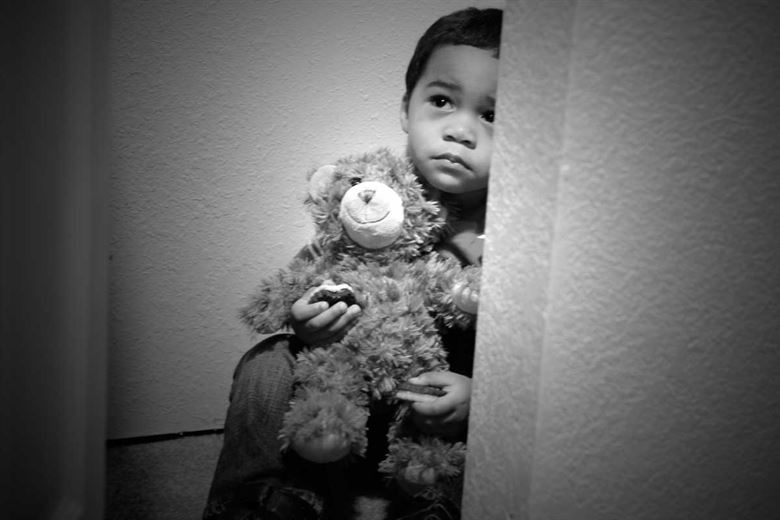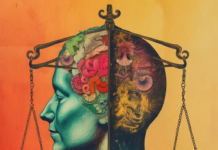New qualitative research on the experiences of children, ages 6 to 12, attending a daytime youth psychiatric facility in Canada examines the coercive control measures and crisis management techniques utilized by nursing staff. The study authors, led by Marjorie Montreuil from the School of Nursing at McGill University, argue that the behavioral approach used by staff, combined with the prevalent view of children as “incomplete,” led to the increased use of coercive and controlling measures, such as physical restraint and seclusion. They write:
“The examination of the institutional norms, structures, and practices in a child mental health setting, combined with an analysis of the moral experience of children and staff members, sheds light on important ethical issues related to childhood and mental health.”
 Psychiatric patients are at high risk of coercive medical practices that violate patient’s rights. Procedures such as involuntary hospitalization, forced or intramuscular medication, physical restraint, and seclusion are often defended as “clinically necessary” and can be court-ordered. Critics and service-users have frequently opposed coercive practices, pointing to the potentially traumatic consequences, and have called for the development of rights-based alternatives. Also, service-users carrying multiple marginalized identities, such as immigrants, refugees, and visible minority groups, are at an even greater risk for medical coercion.
Psychiatric patients are at high risk of coercive medical practices that violate patient’s rights. Procedures such as involuntary hospitalization, forced or intramuscular medication, physical restraint, and seclusion are often defended as “clinically necessary” and can be court-ordered. Critics and service-users have frequently opposed coercive practices, pointing to the potentially traumatic consequences, and have called for the development of rights-based alternatives. Also, service-users carrying multiple marginalized identities, such as immigrants, refugees, and visible minority groups, are at an even greater risk for medical coercion.
Previous research also tells us that this risk of coercion is even higher in adolescent mental health care settings. In an attempt to investigate how staff and children ethically understand said these practices, Montreuil and her colleagues sought to explore and document the agreed-upon moral norms that are used to justify the dehumanization of children in psychiatric practice.
Using philosopher and fellow Canadian Charles Taylor’s understanding of identity as it relates to the social and local imaginary—the resource we refer to, to better understand the world around us—Montreuil analyzed the narrative experiences of both the staff and the children alike.
The researchers utilized a focused ethnographic methodology and a participatory research framework to examine the complex local imaginary of the mental health care setting. The three main methods used were participant observation, interviews with key informants, and documentation review.
The coercive measures used in this setting, in alignment with local legislation, were seclusion and human restraint. Seclusion, in this case, involves a child being placed in a 2-by-1-meter room with concrete walls, a small window, and a twin bed lying against the wall. Human restraint is exemplified by the nursing staff grabbing the child, so they cannot move their arms or their legs, often carrying or holding them to the seclusion room. These measures are often implemented because of an aggressive outburst.
Despite the availability of alternative methods for responding to outbursts, “all staff members shared [that] they were acting in the child’s best interests,” and “emphasized there were different normative implications expected of children because they are children.”
However, it is this kind of rationalization that Montreuil and her fellow investigators argue fosters an environment that condones what would, typically, be considered morally impermissible coercive action.
The researchers found that the staff viewed the children in the setting as not yet capable of utilizing rational thinking or socialization skills. Therefore, they claimed it must be the children’s best interest for the staff to use coercive crisis management interventions, as this will prepare the children for future participation in society.
The staff members, who considered themselves authority figures, describe the use of control measures as an effective way to decrease the frequency and duration of disruptive disorders and aggressive outbursts. They all shared a concern that without a uniform authoritative approach, they might lose control of certain situations that involve more than just one child.
But, some of the children saw it differently—some saw it as a punishment. One child reported after he was carried, screaming, from one room to the seclusion room:
“They get me for things I didn’t do.”
However, a few children also reported that the staff members are not just rule enforcers, but playmates, educators, and caregivers.
Montreuil’s qualitative data collection reveals that many children found the consequences of their actions unfitting or harmful. One boy argued that sitting at a “think desk” makes him depressed. However, the staff was often not open to such feedback from the children, which may lead to detrimental consequences within a mental health care setting.
The researchers sought to understand and humanize the children by asking them what they would consider most helpful in a crisis; the children emphasized relationship-building and productive conversations over the commonly used control measures.
The study suggests, however, that as long as the staff understands children as lacking rational thinking and socialization skills, the institutional norms of physical restraint, seclusion, and overbearing authority will remain, making it difficult for any alternative, especially one brought up by a child, to be taken seriously.
****
Montreuil, M., Thibeault, C., McHarg, L., and Carnevale, F. A. (2020). Moral Experiences of Crisis Management in a Child Mental Health Setting: A Participatory Hermeneutic Ethnographic Study. Culture, Medicine, and Psychiatry, 44(1), 80-109. (Link)















Samantha,
I can tell you for a fact that Psychiatric drugs cause Suicide and Mental Illness.
I have had regular suicidal hospitalizations, on the drugs below..
https://insights.ovid.com/clinical-psychopharmacology/jcps/1983/08/000/suicide-associated-akathisia-depot-fluphenazine/6/00004714
..but never before going on them (1960 to 1980) or since coming off them (1984 to 2020).
Report comment
“…staff viewed the children in the setting as not yet capable of utilizing rational thinking or socialization skills. Therefore, they claimed it must be the children’s best interest for the staff to use coercive crisis management interventions, as this will prepare the children for future participation in society.”
“rational”
Report comment
Yeah, apparently the staff aren’t yet capable of using rational thinking or socialization skills, either, are they?
Report comment
“Prepare the children for future participation in society.”
It’s telling how the goals focus isn’t on the well being and health of the child but rather on what society can get from it.
Using physical force, dehumanizing, and drugging children does teach them something. But it feels like they are being prepared to be slaves rather than for a noble purpose.
Report comment
Maybe that’s what they mean. Prepare them for the idea that they’ll have no power and be subject to the whims of those who control our society?
Report comment
They won’t flat out admit it but that is what the mean. It’s similar with stimulants for children labeled as ADHD. The drugs don’t improve grades, harm the child’s health and result in higher rates of depression, bi-polar etc. That doesn’t matter because people in authority find the drugged children are easier to manage. Makes one wonder are the other drugs considered good for similar reasons? Are “antipsychotics” given because they make people semi-unconscious meaning they are easier to manage?
Report comment
I am afraid that is the real “benefit.” It makes people less inconvenient for the status quo to control.
Report comment
Bingo.
Report comment
“The study suggests, however, that as long as the staff understands children as lacking rational thinking and socialization skills, the institutional norms of physical restraint, seclusion, and overbearing authority will remain, making it difficult for any alternative, especially one brought up by a child, to be taken seriously.”
How big was the grant to come to this conclusion?
How many years did this take?
How many hours of abuse did they get paid to watch?
How many children have trauma from telling the researchers “this hurts” and having them too just keep collecting the paycheck and taking notes?
We aren’t specimens. I’m not sure if the researcher’s attitudes are any better than the nurses.
The only pseudo-good that can come of being Man and or Wo-manhandled is that children who don’t learn “restraint” enough to escape will be passed next to Adolescent Psych and on and on and on.
“Hey Buhdeeeee! I see you drowning there. How does that make you feel? la la la dodo do. Why yes I probably could pull you out, but what about all these other drowning children, how do you think they’d feel? Plus I felt threatened by your screams for help. You know it’s not nice to be angry Buhd. Plus I haven’t finished figuring out why your parents and the nurses pushed you in in the first place. And then I have to research the best way to pull you out. Can you hold your breath for a couple of years? I’m pretty busy maybe make that a decade. Oh wait I forgot… ethics! Maybe I can’t. No I can’t call 911 for you they’d think I was crazy too Sweetie! I may lose my funding! you wouldn’t want that now would you? My own kids got to eat and go to Harvard. Well Buhdeee! It was great talking, but my shift is over and I have a life. You hang in there! You’re doing GREAT!”
Report comment
Exactly.
We know the thousands of excuses of anyone involved in this garbage.
Report comment
Beginning in the 1980’s and exploding in the 1990’s, child psychiatry barged its way into the school system and millions of kids got caught up in it, especially for ADD/ADHD or “bipolar disorder”, and I’m sure that group homes across the country are full of wards of the state that have this background, and many more dead or suffering with nowhere to turn because society doesn’t really talk about child issues, and adults who’ve had horrific childhoods are expected to just buck up and move on, or become the cash cow on SSI/SSDI for psychiatry. Sometimes, as my story will one day be told, you can be trapped in both identities; a psychiatric victim/’survivor’ and a “disabled mentally ill person”, because there appears to be no real way to move on, especially without societal acknowledgement of the abuse, trauma, brain damage and subsequent ruined-life at the tax payers expense via psychiatry in the schools; and often against the parents wishes, using coercion and threats of taking children away via “medical neglect” as “child abuse” or denying services to parents that refuse to go along with the gravy train and drug their kids for these sick profiteers.
Report comment
JeffreyC I can very much relate to this.
“trapped in both identities; a psychiatric victim/’survivor’ and a “disabled mentally ill person”, because there appears to be no real way to move on, especially without societal acknowledgement of the abuse, trauma, brain damage and subsequent ruined-life”
Report comment
It’s not just that society doesn’t admit and apologize for killing, disabling and ruining millions of lives. It’s that society is still doing it. 20% of the population is currently being harmed by psychotropic drugs. People I know and love are taking these drugs. Even the ones who want to quit can’t because the withdrawal is so horrible. I made friends through the mental health system that did not survive it. If I move on from this it will be a miracle.
Report comment
It will be a miracle. An ordinary, everyday miracle, yes, but still a miracle nevertheless…. But yes, most miracles do seem to require some amount of time and work to come true. And once you start the work, good results happen!
Report comment
Well said, Jeffrey, and I agree it’s disgusting. The schools are actually paid for every child they drug up. And you are correct, CPS and the social workers are literally stealing children from their families.
https://community.healthimpactnews.com/topic/4576/america-1-in-child-sex-trafficking-and-pedophilia-cps-and-foster-care-are-the-pipelines
Then some of these children are trafficked. The system is appalling, and destroying America from within. But a psychologist did confess to me that maintaining the current evil system is the goal, which is why a school social worker wanted to get her grubby little hands on my well behaved child, merely because he’d gotten 100% on his state standardized tests.
You know you have illegitimate leaders, who’ve created bad systems, when the psychologists freely admit that they want to murder the best and brightest children in our country, in order to maintain the status quo.
But, of course, that does mean that the “mental health” industry, who are behaving in this deplorable manner, are also traitors to America. Since killing the best and brightest students in America is not good for America. We should get rid of these scientifically “invalid” and evil systems instead.
Report comment
This reminds me of that Dianne and Vincent Boothe story that unfolded in the Early to mid 2000’s. The last I found anything on it, maybe 5 years ago, Dianne had gone “psychotic” (gays and lesbians are conspiring with satanists to blahblahblah so the state can take away children), and apparently there has been no finding Vincent. I’m still interested to see whatever happened to DJ Koontz from “the medicated child”, seeing as how he had severe neurological damage and the sort of closed head injury brain damage that … wow, just wow. I wonder where he is today, and why journalists didn’t keep track of any of this.
Report comment
great comment, O.O. Its chilling to think about.
Report comment
Why isn’t this research essay getting the same outrage as the Jordan Peterson Spank yer Kids Critique Column? (NO, I’m not into spanking. Not into bondage either.) Or Trump labeling. We rage with and against personas, public images as a platform, but what if it’s the wrong bus stop? This essay has real children’s real words about real abuse and not many raging in response. It’s disturbing. The language in the piece is distant and analytic, but if you have any imagination at all, or worse, have been there. (From my experience with Child Psych… That bed in that little room is also a privilege they can take away.) It’s Sad. Our SILENCE. It’s telling. This is why we need the voices of people who have been to hell and back given the floor 50% of the time. All this Right Wing Left Wing what-not. I’m pretty sure neither could get lift off without the other. Intellectuals? You need us for flight more than you realize. It’s just physics. (Well, there is this one other way that could be arranged, but I’m not sure you’d survive it.)
Report comment
I’m pretty much sickened, as is everyone here, I assume.
THIS is part of and who psychiatry is, what they stand for. I say “who”, not “what” because
this kind of crap is reflective of WHO they are, as people.
They hide individually behind the WHAT.
Sure there are supposedly “good” psychiatrists, although I once asked a doctor if she “knew of a good psychiatrist to recommend”
And she answered, that in the case of that field, one could not use the word “good and psychiatrist”
You might think ,and I did, that she was awesome and wise, but she liked to prescribe like a psychiatrist.
These guys harm. The internalized shit they leave people with is a bonus. I wish they could man up and hurt people in ways that regular citizens do…..
Commit an illegal crime instead of a legal one. Some guys have the guts to serve time.
Think of yourself as lucky that you can actually identify criminals. And lucky you escaped with emotions intact and ability to empathize.
Hopefully, we can use some of that towards ourselves and others that don’t occupy a script pad.
Report comment
….we’re a bunch of TAIL FEATHERS here at MiA….
Report comment
I had to look up what TAIL FEATHERS were. (Other than actual feathers of a tail.) hahaha. I did kind of give off that vibe in the above comment. Sorry. 🙂
Report comment
https://www.youtube.com/watch?v=M5zNrFPfx3c
Report comment
Wonder if research can help us understand how staff rationalized this!?!
Report comment
Well it can’t. But many people are oh so pleasantly comforted that psychiatry or any watchdog would be “kind” enough to “research”, or “investigate”.
The words “research”, “investigation” and “studies”, are convenient diversion and have the added benefit of keeping the original abuse alive and well, but they try to hide it a bit more, just long enough for the next “investigations”.
Report comment
Like my complaint requesting the photo of the child psychiatrist who damaged me be moved out of the psych wing where the abuse happened in the name of trauma informed care? And they look into it and hum and hah until I give up or die? The best they can commit to is “forwarding my feedback” and they don’t have to tell me a decision so the feedback could be shredded on arrival for all i know, but the nice lady talks to me nicely and forwards it again and research is done but nothing changes cause somehow no one with any authority ever sees anything on the child wards. And blah blah blah blah blah. Dr Parsons photo still hangs there proudly and we the children are left with no more recourse than the rateMD page. Screaming is about all that’s left and who can, what with a chart flagged psychotic noncompliant and the wellness checks and all.
Report comment
https://www.independent.co.uk/news/uk/crime/hill-end-hospital-adolescent-unit-child-abuse-sexual-physical-police-investigation-hertfordshire-a8063216.html
Report comment
Thank you O.O.
Perhaps they need to do some more “investigations”, or “studies”, or “research” into abuse.
The last “studies” showed some “dissatisfaction” amongst “patients”.
Report comment
Another death from psychiatry.
Another Child death…
https://www.youtube.com/watch?v=AOY-abcGXcw
Report comment